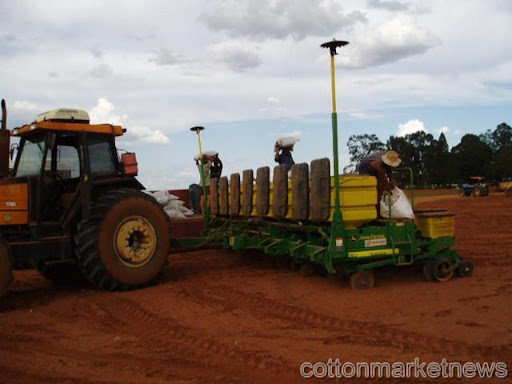 Bt cotton seed companies have sought an increase in the prices of individual genetic technologies and double the government of Andhra Pradesh.
Bt cotton seed companies have sought an increase in the prices of individual genetic technologies and double the government of Andhra Pradesh.
At a meeting convened by the state Agriculture Minister YS Vivekananda Reddy here, said that if the prices have not improved, the gap between supply and demand will expand next kharif as well as bleeding from the companies.
Representatives and members of both the National Association of Seed and Seed Producers Association of Andhra Pradesh requested an increase of two Bt and Bt seed price of cotton to a minimum of R 825 and R 1050 per package (450 g) of this R 650 and R 750, respectively.
The company asked the minister to formulate a pricing mechanism that takes into account the increased cost of production and other factors before deciding on the price of each year.
The current prices were set in 2008 by the government under a special law made earlier for this purpose. The companies argued that the purchase price has increased by just 58 percent in the last four years to Rs 419 per package of Rs 2010 Rs 2006 and could not sustain the current planning needs. According to the statement that a long-term policy in this regard was imminent, the minister said the government comes out with a reasonable proposal on the revision of prices for the next kharif next week.
National Impact
Any revision of prices by the government of AP will have a national impact on the operations of cottonseed and other governments have followed the AP prices as a benchmark in their respective states.
Union Minister Sharad Pawar wrote a letter to Chief Minister N Kiran Kumar Reddy yesterday advising the latter to lift the price controls as the measure was affecting the agricultural sector and enterprises, according to representatives.
Bt cotton seed companies in Andhra Pradesh account for 50 percent of the total seed production in the country. It was in 2006, when the state government intervened, setting the price at Rs 750, which was ruling around Rs 1800, due to increased royalties are paid at the time with technology provider Monsanto.
When the Bt-2 variety was introduced in the country in 2007, the state government allowed a price of 925 rupees, while maintaining the Bt, a price unchanged.
However, the state government again reduced the price of Bt and Bt 2 to R 650 and R 850, respectively, in the following year.
The governments of several states followed suit asking companies to reduce prices, which affects the operation of cotton seed throughout the country.
seed production of Bt cotton is 28 million parcels and a remaining stock of 6-7 million packets against the projected demand for at least 42 million packages in the next kharif, according to P Sateesh Kumar, secretary of the state association of seed companies.
He said companies can not pay a higher purchase price because of a ceiling on selling price, farmers seed producers were being deterred from taking the culture that leads to a dip on a large scale.
National Seed Association Secretary Harish Reddy said the government should consider increasing the minimum wage labor representing 60 percent of the cost of seed production as well as linking the price inflation. Governments of Punjab and Haryana have already increased the price of Bt and Bt 2 to R 825 and R 1000, respectively, he said.
After the introduction of Bt technology in 2002, the country's cotton production came to 503 million bales in 2010 to 302 million bales in the first year.
(Source: http://www.business-standard.com/india/news/bt-cotton-seed-firms-seek-price-hike/429301/)


























0 comments